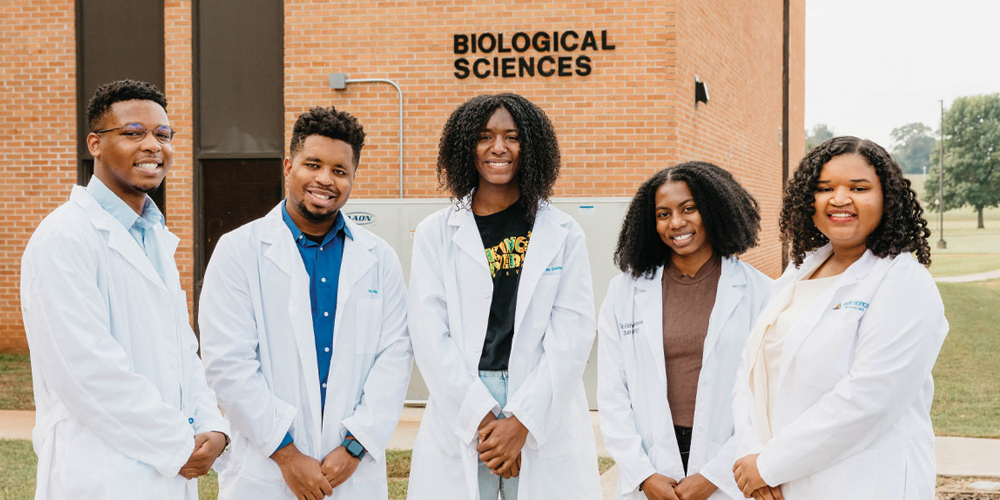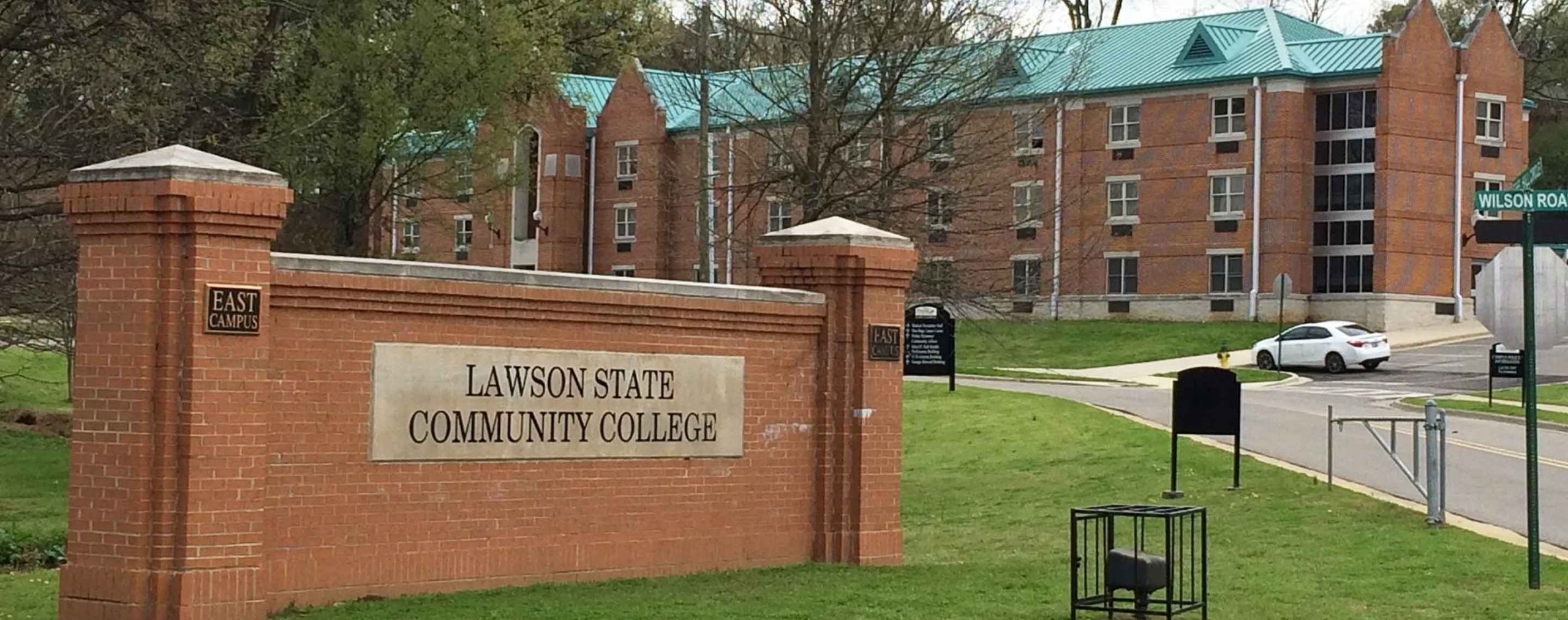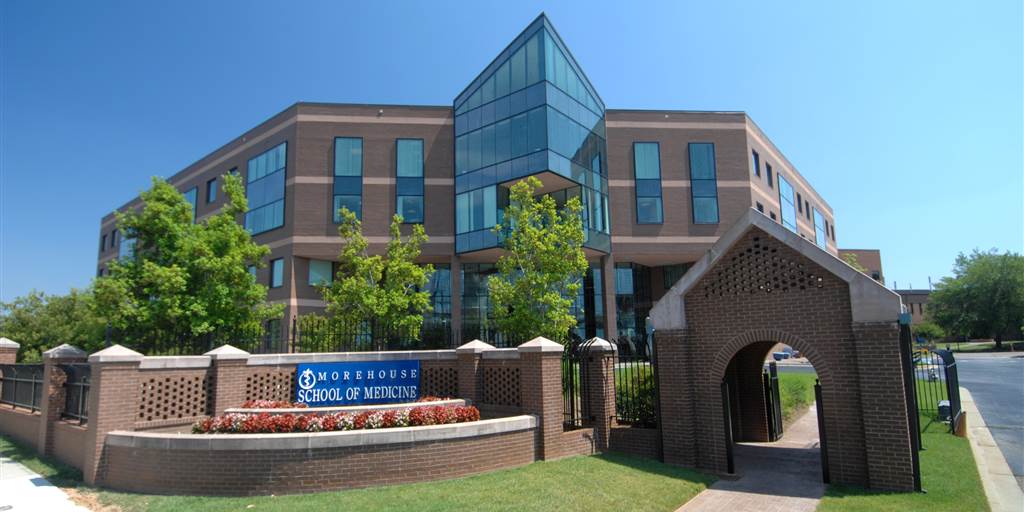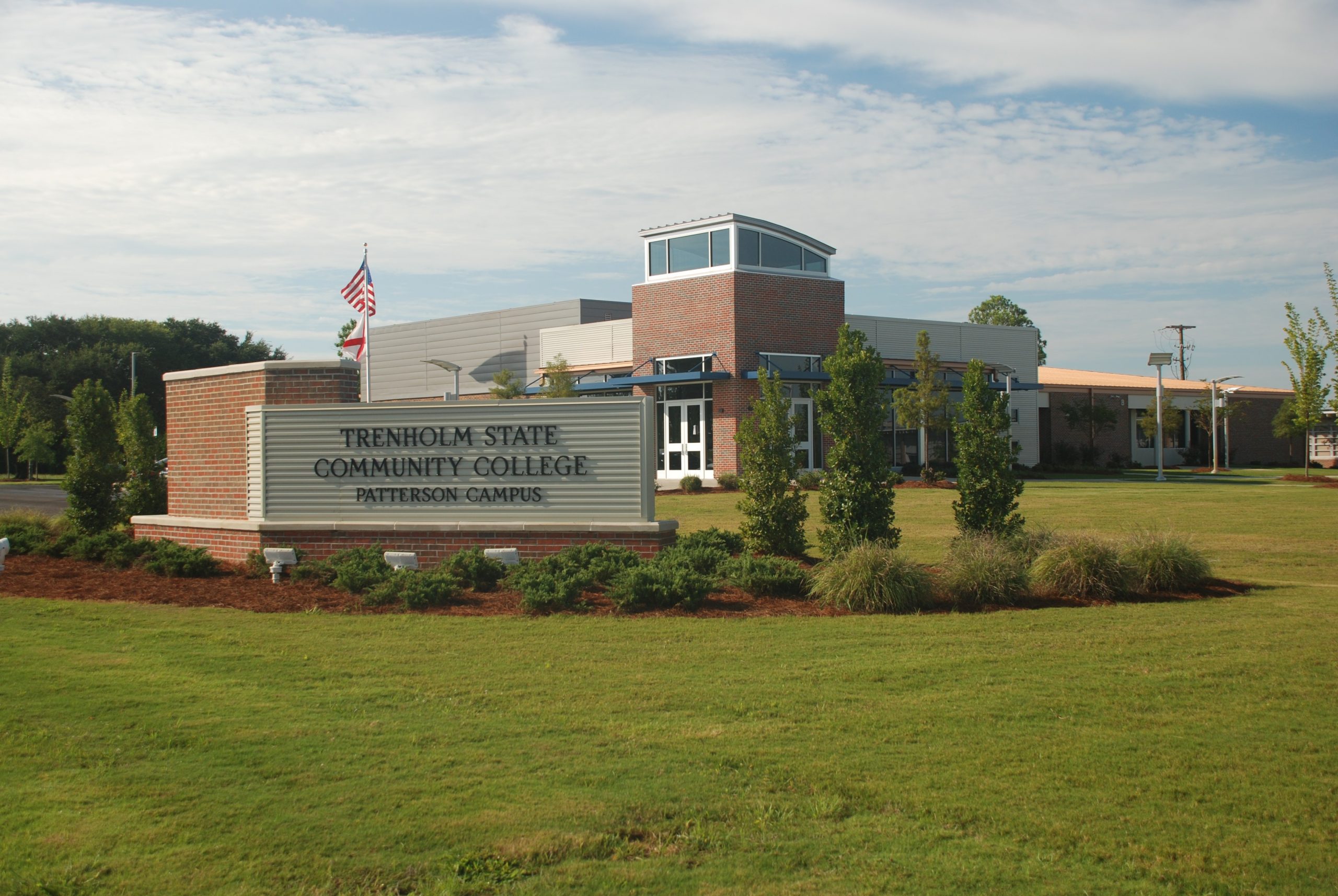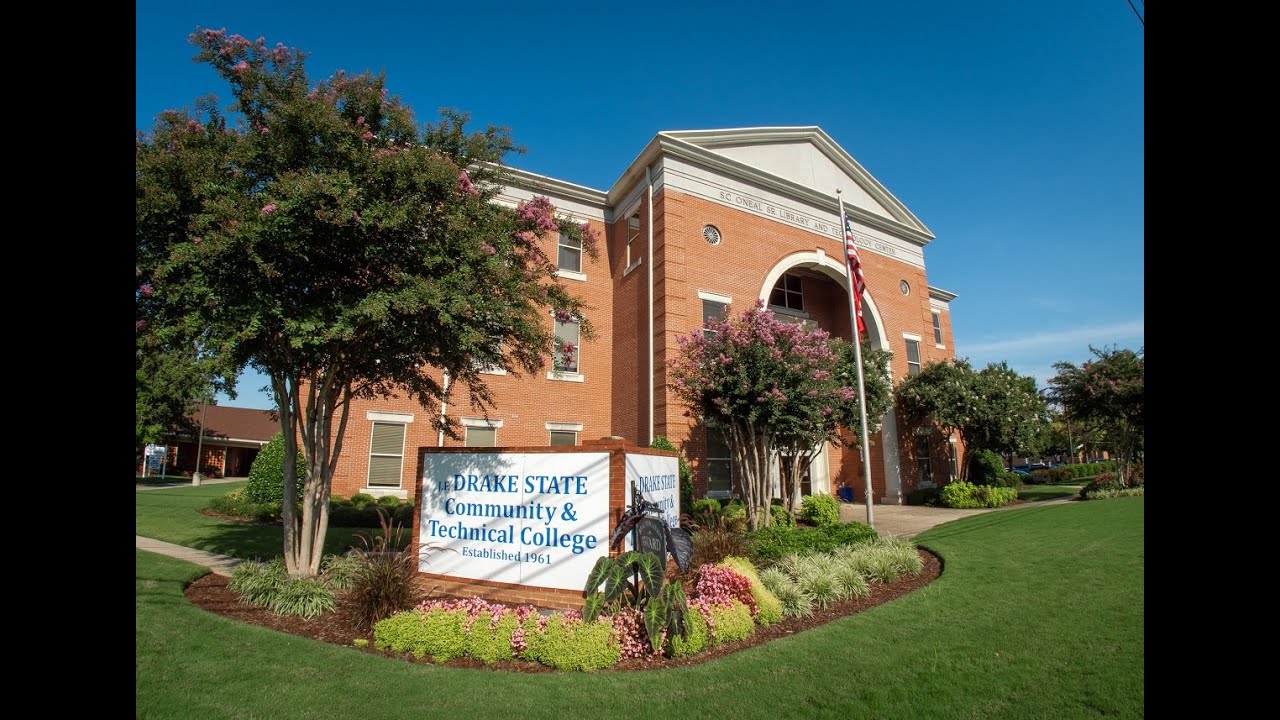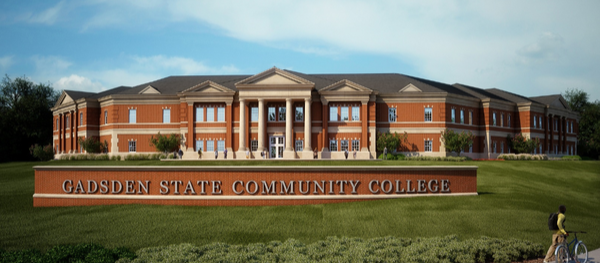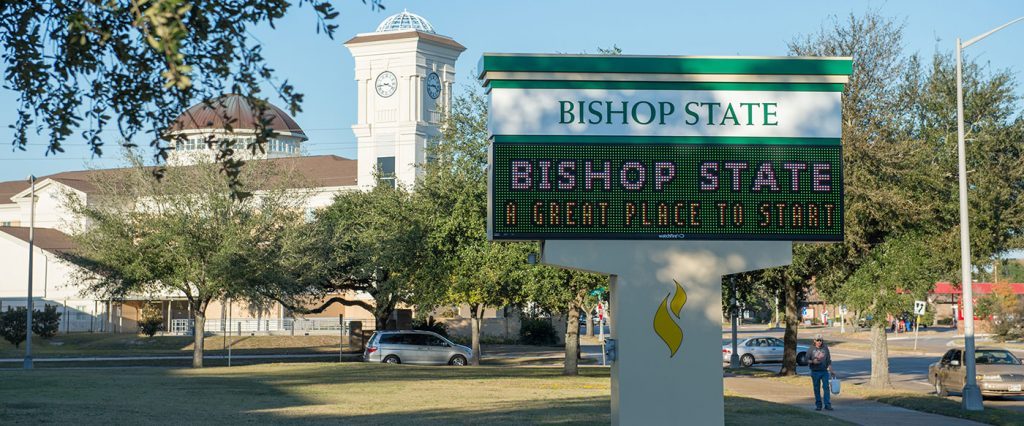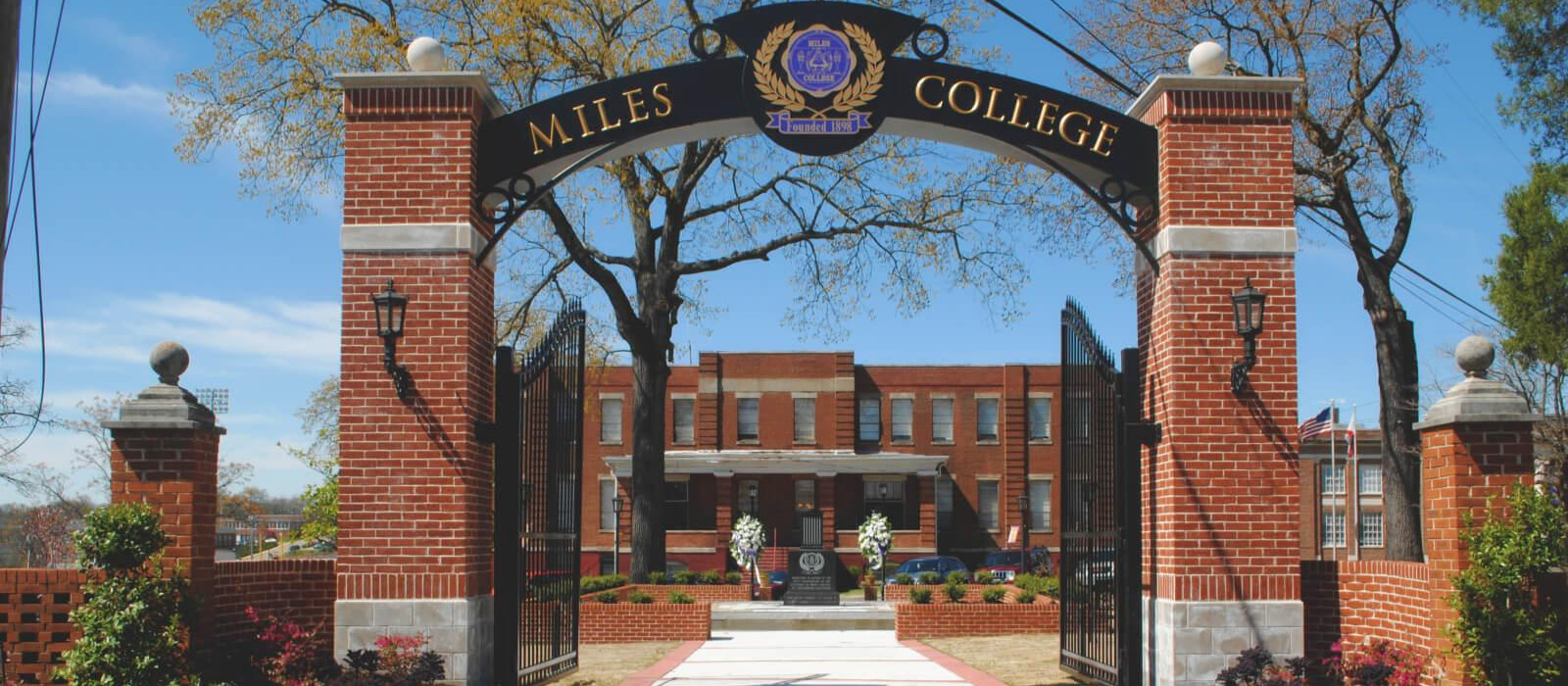
Explore HBCU – Miles College
Miles College is a historically black, private, liberal arts college in Fairfield, Alabama.
Background
Miles College was founded in 1898 by the Colored Methodist Episcopal Church as Miles Memorial College in honor of Bishop William H. Miles. The institution was chartered by the state in 1905, and by the end of the 1960s, Miles College was known nationally with the 1966 addition of the Taggart Science Building and the 1967 faculty addition of John Monro, previous Dean of Harvard College. In 1974, Miles College continued to expand with the addition of evening law school classes to address the fact that there were reportedly only 40 African-American lawyers in the state of Alabama. This was closely followed by the founding of Miles Law School.
Though a time of expansion, the 1970s and 1980s also posed difficulties for Miles College as cuts in government funding caused financial aid opportunities to decrease and student enrollment to drop. The college continued to persist, and today Miles College has worked to grow its base of support in order to continue providing for its students.
Recent partnerships with leading companies and government facilities have increased Miles’ ability to offer cutting-edge programming in tech and entrepreneurship, as well as activism and advocacy opportunities such as the new Center for Social and Economic Justice.
Miles College is accredited by the Southern Association of Colleges and Schools Commission on Colleges, the Alabama State Department of Education, the Council of Social Work Education, and it is one of only 39 HBCUs to be designated a United Negro College Fund (UNCF) institution.
Programs & Opportunities
Miles College is divided into six divisions: Business and Accounting, Humanities, Natural Sciences and Mathematics, Social and Behavioral Sciences, Communications, and Education. Each division has its own faculty, as well as offering a range of majors and minors that total to over 30 degree programs.
When students attend Miles, they’re exposed to a well-tailored education that aims to be as personalized to each student as possible. At Miles, students receive academic and personal counseling from staff members who care, with an especially targeted academic support program for the first two years of enrollment. In addition to career and learning resource services, there is a four-year honors curriculum that challenges students with advanced academics, trips to conferences, and mentored research.
To further advance the enrichment of students, Miles emphasizes a connected student body, with student-run activities and clubs, student government, Greek Life, service organizations, and many more opportunities to connect with others and foster a strong community environment.
Learn more about Miles College’s academic and social offerings here.
Alumni Affairs
Miles College aims to graduate leaders who are life-long learners and responsible citizens who positively shape global society. Some of Miles College’s notable alumni include, but are not limited to:
- Uriah “U.W.” Clemon—Alabama’s first black federal judge and former chief judge of the United States District Court for the Northern District of Alabama—earned his Bachelor of Arts from Miles College.
- Autherine Lucy—educator, civil rights pioneer, and pivotal figure in the desegregation of Alabama schools—went to Miles College to obtain a Bachelor of Arts in English.
- Mildred Brown—journalist and civil rights leader and activist in Omaha, Nebraska—graduated with a degree in education from Miles Memorial Teachers College.
Financial Information
At Miles, school officials work to maximize scholarship opportunities while minimizing educational costs. For on-campus students, the estimated cost of attendance is $22,662; for off-campus students, $27,501.
Financial aid is offered in the form of grants, work-study, loans, and scholarships. Starting in Fall of 2022, Miles College will also be a participant in the Student Freedom Initiative’s Income Contingent Alternative, which is designed to offer greater opportunity for STEM majors at HBCUs. For eligible juniors and seniors, the Student Freedom Initiatives offers a lower-cost alternative to Parent Plus and private loans that is based on income earned post-graduation.
Most students at Miles College receive some form of financial aid, including federal grants, loans, and Miles scholarships.
Conclusion
At Miles College, students and faculty alike work to intellectually and professionally contribute to the broader community. With its open access policy, Miles welcomes students regardless of educational background, race, ethnicity, religion, or nationality.
Learn more about Miles College here.
Sources:
- https://uncf.org/member-colleges/miles-college
- https://www.findmyhbcu.org/school/miles-college/
- https://www.miles.edu/we-are-miles/miles-makes-history
- https://hbculifestyle.com/list-of-hbcus-by-state/miles-college/#:~:text=Miles%20College%20began%20organization%20efforts,College%20Fund%20(UNCF)%20institution.
- https://www.al.com/sports/2013/07/fairfields_miles_college_reach.html
- https://www.miles.edu/accreditation
- https://www.miles.edu/your-education/academic-divisions
- https://www.miles.edu/your-education/support-and-enrichment
- https://www.miles.edu/place-belong/student-life
- http://www.encyclopediaofalabama.org/article/h-1633
- https://www.encyclopedia.com/history/historians-and-chronicles/historians-miscellaneous-biographies/autherine-lucy-foster
- https://nebraskastudies.org/en/1925-1949/mildred-brown-omaha-star-founder/
- https://www.miles.edu/admissions-aid/costs-financial-aid
- https://www.miles.edu/
Pictures:
- Miles College Logo: https://www.al.com/spotnews/2013/02/black_history_month_events_con.html
- Miles College Entryway: https://hbcuconnect.com/colleges/58/miles-college
- Miles College Financials: https://cocacolaunited.com/blog/2019/10/07/community-partnership-miles-college/
- Miles College Students Sitting: https://hbcuconnect.com/content/361513/ibm-provides-miles-college-with-2-million-in-ai-and-open-hybrid-cloud-technology-resources-to-help-students-build-modern-ski

